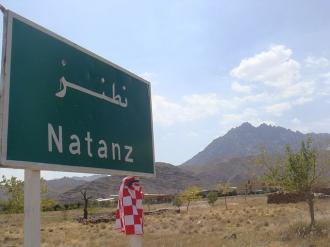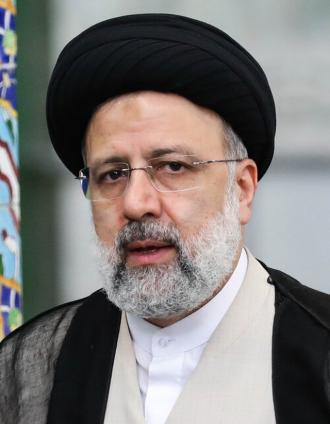Lot exhibits extreme devotion to the mission of Avraham and Sarah. He too, loyally forsakes the comforts of his homestead in the pursuit of a nobler life under the inspired direction of Avraham. He continues to follow Avraham’s lead in going down to Egypt during the famine. There, we are taught, he exhibited extraordinary faithfulness in not divulging to the lecherous Egyptians, Sarah’s true identity as Avraham’s wife, lest he endanger Avraham.
Yet, as soon as a spat develops between the shepherds of Avraham and those of Lot over insufficient pasture land, Avraham rather than attempting to convince them to live together in harmony, seemingly readily gives up and suggests to Lot to seek greener pastures in order to avoid further conflict. The otherwise steadfast Lot, suddenly without any hesitation, accedes and immediately parts ways with his remarkable brother-in-law and uncle, Avraham.
Lot opts to put his stakes down among the sinful denizens of Sodom, and is eventually taken captive during the Battle of the Kings, and is nevertheless wholeheartedly and heroically rescued by his loving and dedicated brother-in-law, Avraham. Lot eventually returns to Sodom only to be plucked twenty four years later from their sentence of destruction, in the merit of his loyalty to Avrohom in his not having revealed the ‘secret’ of Sarah being the wife of Avraham during the episode in Egypt. Not only is he saved but he goes on to father two children, Moav and Amon, whose descendants, Rus and Naamah respectively, will mother the royal Davidic dynasty.
Was Lot a good guy or a bad guy? He clearly must have had some merit in being the ancestor of all the descendants of King David including the Moshiach.
Why initially did Avraham summarily dispatch Lot without first trying to resolve the problem?
We are told that Lot’s shepherds wouldn’t muzzle their cattle, allowing them to graze wherever they pleased. Were Lot’s shepherds simple thieves who had no consideration for others?
The illustrious Rosh Yeshiva of Slobodka, maintains that there was a impassioned theological debate going on between the disciples of Avraham and those of Lot. Lot was an inspired figure who mirrored many of the outstanding qualities of generosity of Avraham. The students of Lot claimed that as heir apparent, since Avraham hadn’t merited children at that time, Lot was entitled to the Promised Land. They admirably sought to assert their ardent faith in G-d’s promise, by exercising their rights to the land.
Avraham realizing their motivation was driven by an understandable instinct for instant success and comfort, and that he no longer exerted authoritative influence over them, strategized to situate Lot as an independent entity who would carry at the very least a semblance of the mission of Avraham in inspiring the world to a belief in a Creator and emulating his benevolent ways. Didn’t Lot risk life and limb in defying the immoral behavior of Sodom by inviting guests to his home in violation of their credo, despite a taint of self-interest?
May I suggest that Avraham understood that Lot couldn’t maintain the high standard Avraham had set for his close followers, but that wasn’t reason to give up on him or simply send him packing? Instead he thoughtfully sent him on his own way but clearly reiterated his absolute love and allegiance to him. Avraham knew that a deep and impregnable bond existed between them and wished to reaffirm that absolute loyalty to each other. Although Lot may have been imperfect in his ability to control his instincts Avraham knew that Lot’s devotion to him personally and vice versa was inviolable. Avraham sought to insure that no matter how far Lot would stray their deep bond would remain intact.
When Avraham initially approaches Lot even before making his suggestion that they part ways, he first reaffirms how, “We are brothers”. Rashi points out that although they weren’t biological brothers but the fact that Lot’s קלסתר פנים, bright countenance, was similar to Avraham’s made them equivalent to being brothers.
The Maharal teaches that this refers not to their facial features but rather to ‘the innermost chambers of their essences that possess a connection and relationship that would never be betrayed by the divulging of their secrets’.
The Maharal refers to this as one of the mysteries of Torah that despite an existence of an outer appearance of separation and division, there exist an unbreakable inner connection and loyalty.
Why do people have such a hard time keeping secrets? There seems to be an inexplicable urge to share confidential information as soon as one receives it.
Man naturally craves for connection. The moment we sense an intimate connection with someone we feel compelled to share our most private thoughts in a desire to connect. Too often it is artificial intimacy that dupes us into an illusion of closeness that prods forth our secrets. So often the physical proximity of people on a plane creates an atmosphere of intimacy that often finds us sharing details of our life we normally wouldn’t. Even the physical touch of a barber produces a false sense of closeness that spurs one to open up.
Another factor that often leads us to share what we might not otherwise is when someone else provides something very personal that we feel a need to reciprocate in order to gain that person’s interest and regard.
Finally, when we find ourselves among people similar to us in dress, background or interests we almost automatically feel a kinship that often ends with us lowering our guard and opening up.
The ones most vulnerable to being seduced by these illusory relationships are respectively: those who lack a healthy intimate relationship with anyone else; one who is insecure and unconfident; one who lacks a clear and defined personal identity.
When Avraham tells Lot to establish himself elsewhere he warmly tells him, “Please separate from me: If you go left then I will go right, if you go right then I will go left.”
Avraham cleverly addressed each of these pitfalls empowering Lot to retain his healthy inner bond.
By giving Lot the option to choose, rather than imposing his own opinion by telling him which direction to go, Avraham instilled a sense of equality, showing his trust in Lot to make a healthy choice. By validating him and his choices, Lot would always cherish his friendship with Avraham that would prevent him from filling a void of connection through artificial intimacy.
In Avraham asserting that he will stand by his side, whether to his right or left and ‘have his back’, Lot would never become vulnerable to securing self-assuredness by feeling the need to reciprocate confidences with others in gaining their trust.
Lastly, Avraham wanted Lot to fathom who he truly was and not live with a deceptive and unauthentic perception of who he was.
The Satmar Rebbe explains, when Avraham says, if you go to the ‘left’, I will go to the right, what he meant to intimate is that Lot should realize that his spiritual standing is somewhat to the ‘left’, desiring to partake of the pleasures of the world with less restrictions that might otherwise be expected were he a member of the household of Avraham. That is okay, Avraham assures Lot, since Avraham will forever be the representation of the stricter adherence to the letter of the law; the ‘right’.
But Avraham warns Lot that if however he seeks to portray himself as the ‘right’, the personification of the perfect servant, then he will expose him for the ‘left-winger’ that he is.
Avraham wanted Lot to be comfortable with whom he was, because only then will he be invulnerable to the temptation to find a false and shallow persona by merely identifying with those similar to himself. If he’d be honest and happy with whom he was, accepting the reality of his station, he is less likely to seek definition by identifying shallowly with others.
It was thus specifically Lot’s ability to keep a secret that was testament to the deep bond he shared with Avraham. It was that loyalty that found its ultimate expression in the devoted kings of the family of David who epitomized absolute loyalty to fellow man and to G-d, that is the hallmark of Malchus, Royalty.
The health of our relationships with one another is measured by our ability to ‘hold on to our secrets’. The talent to keep a secret stems from a healthy perception of self.
In a world where the obsession to hang out one’s laundry in public is so prevalent, it would be wise to reevaluate whom we really are, because in understanding that lays our true and loyal greatness.
באהבה,
צבי יהודה טייכמאן















